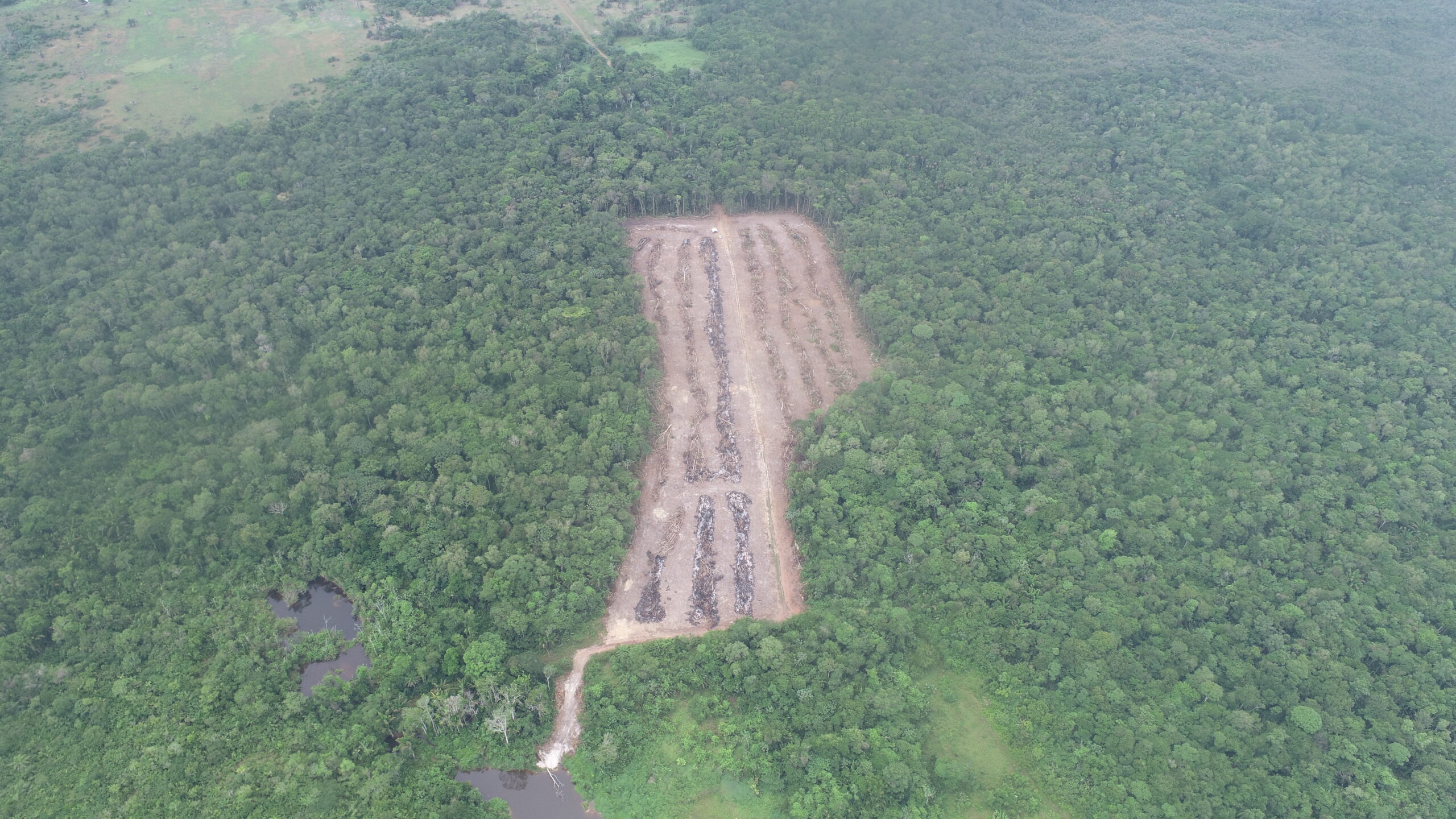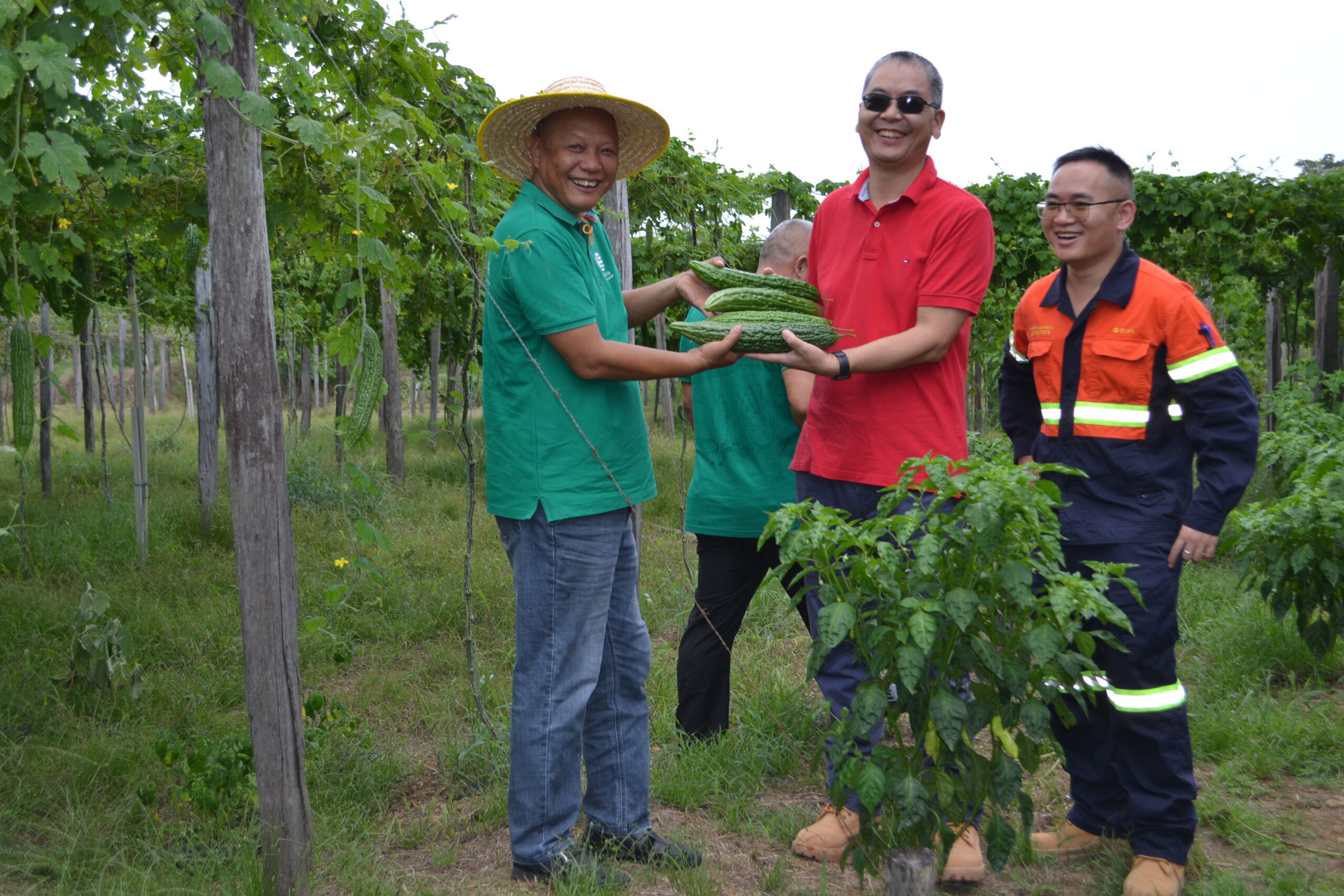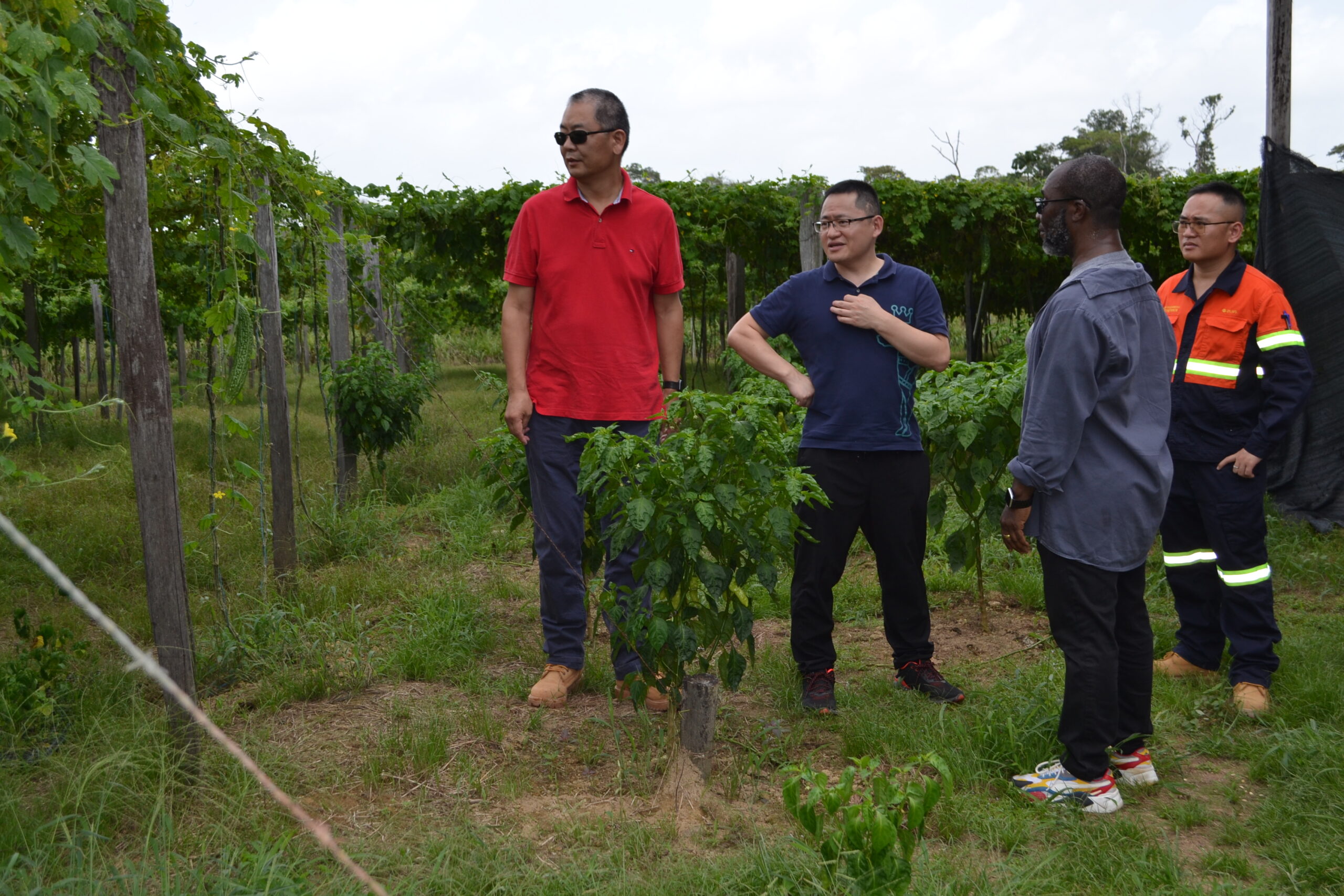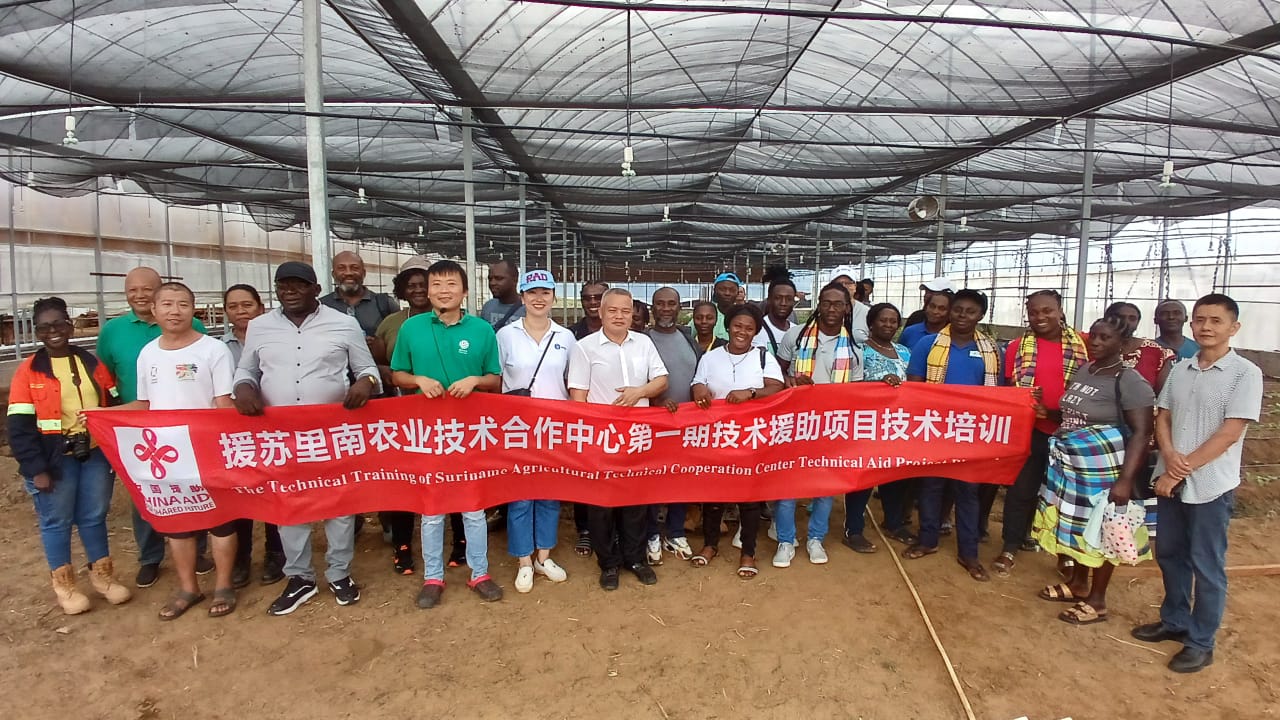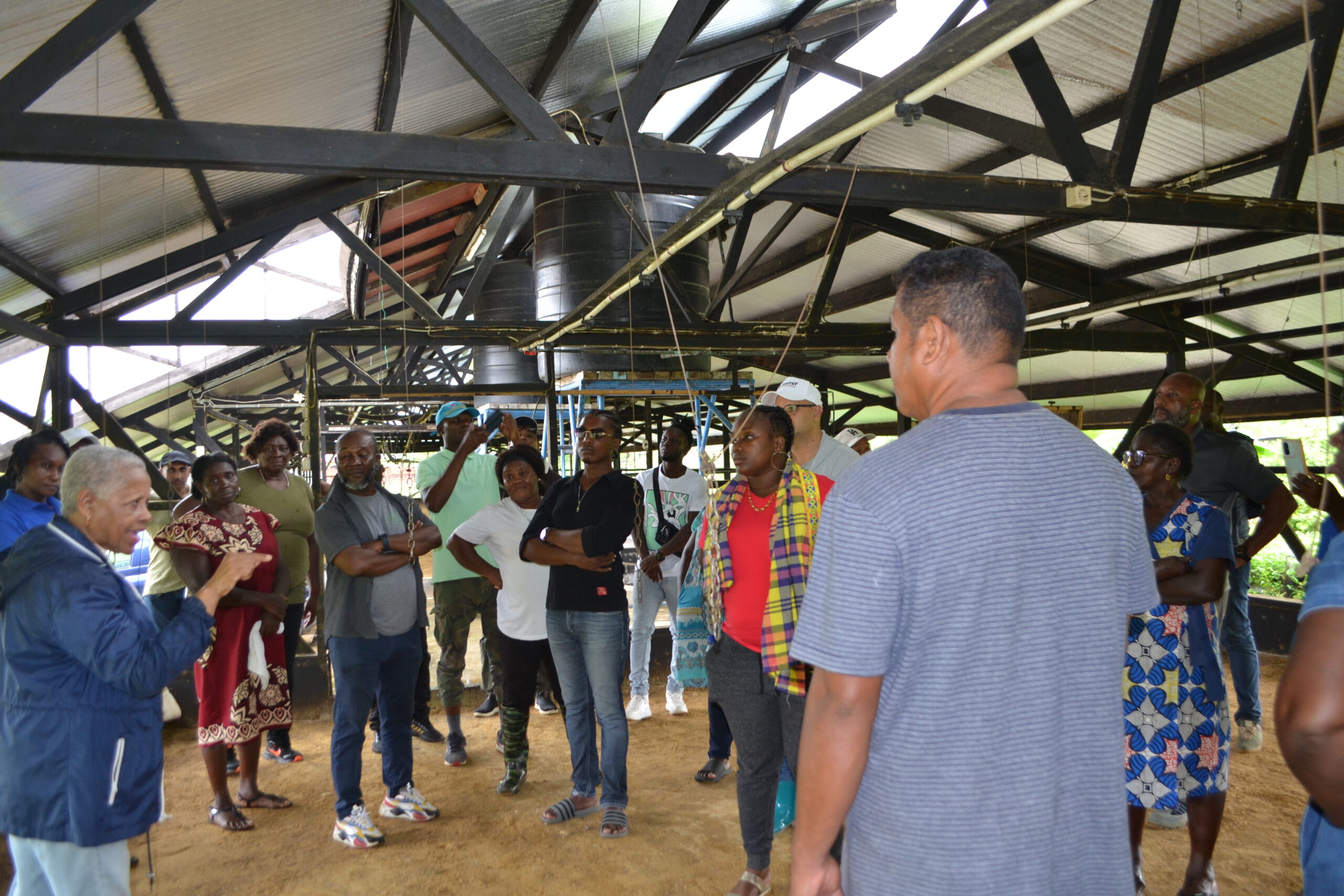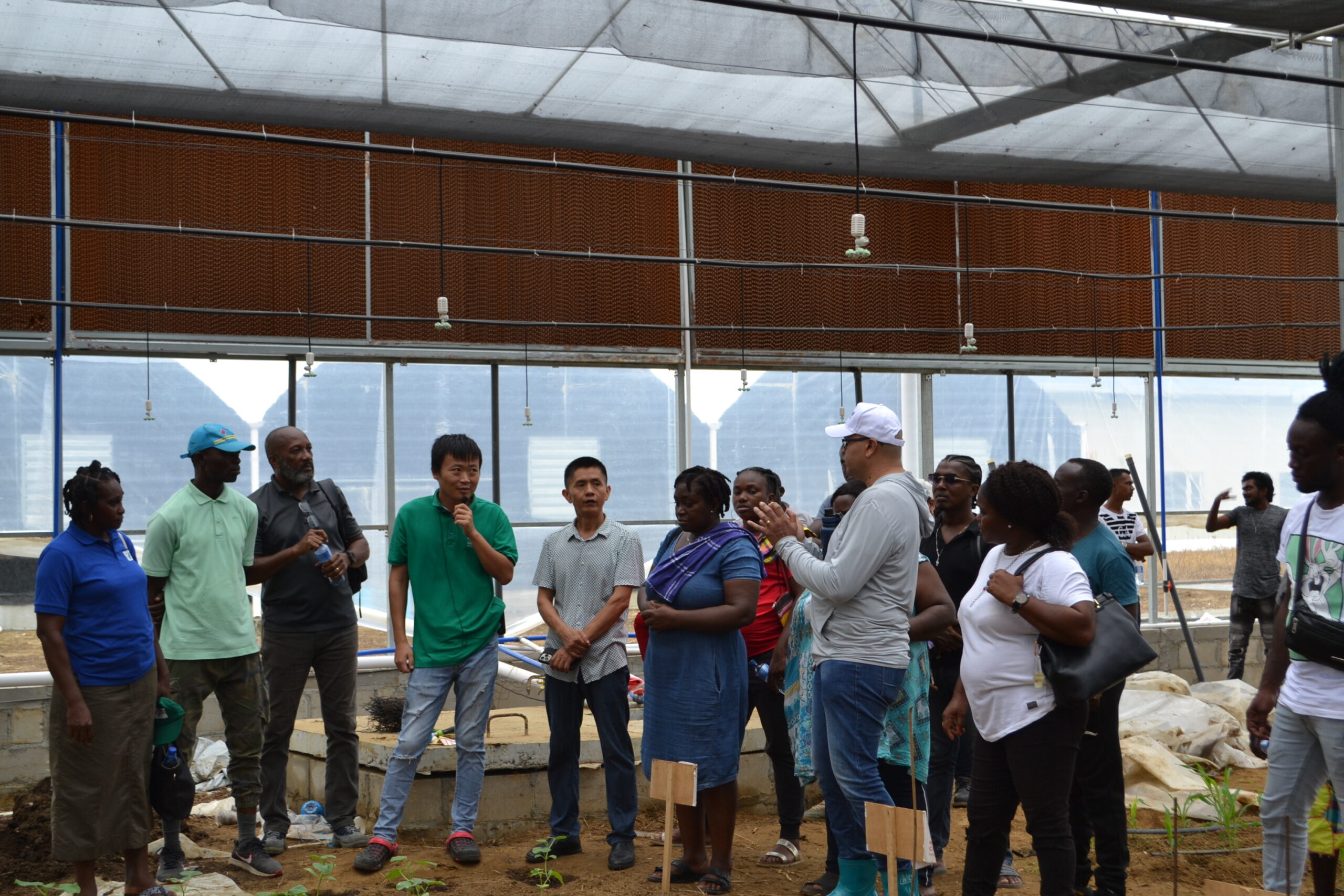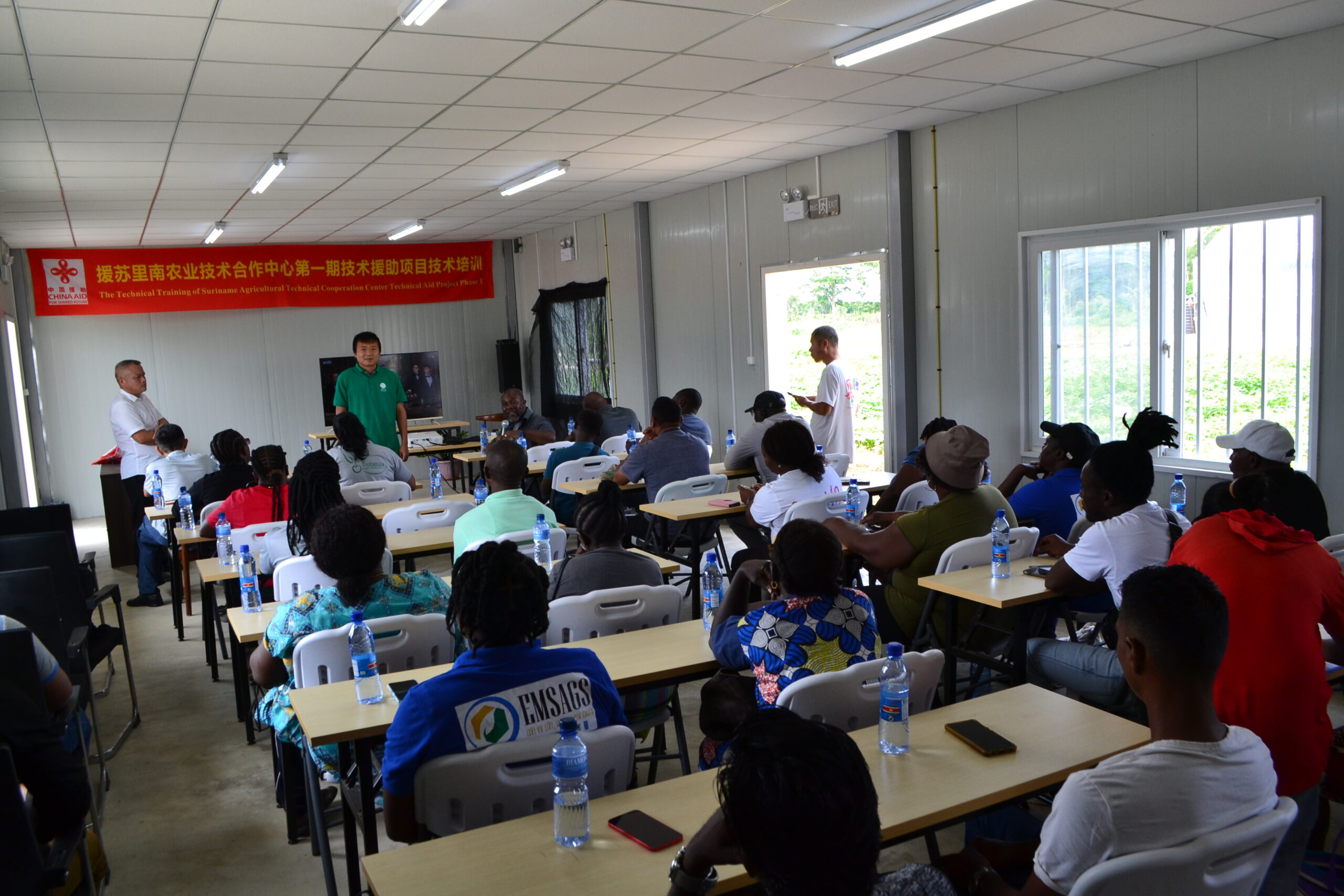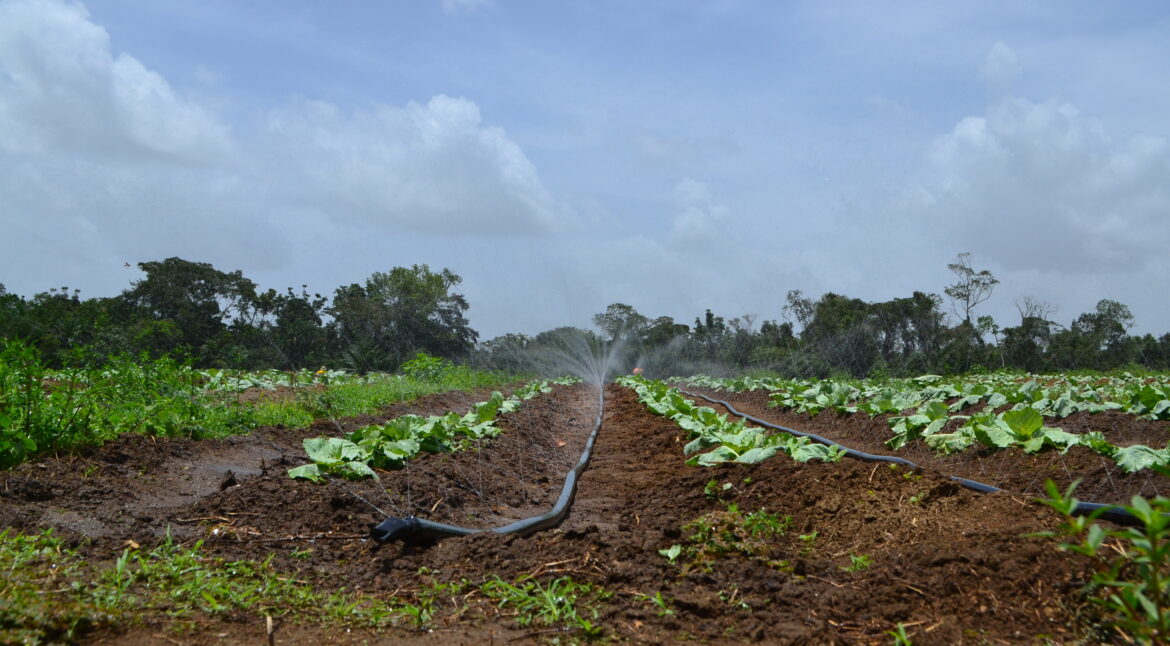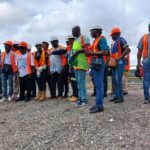Rosebel Gold Mines NV. (RGM) operates a large-scale gold mine in the district of Brokopondo, Suriname, with a satellite pit in the Sipaliwini district. The company currently employs around 2000 workers who must be provided with food including fresh vegetables and fruits every day. A local village company named Bonanza Agro Industry (BAI) supplies 67% of RGM’s demand for vegetables and fruits currently. The target for RGM is to purchase 100% of its fruits and vegetables from local village suppliers.
To achieve this, the Out-Grower’s concept was developed, where ten (10) small farmers from Brokopondo were selected to increase the production of vegetables and fruits. On September 9th, 2022, the project agreement of the Brokopondo agriculture program was signed by the former Rosebel Gold Mines NV (RGM) General Manager and the platform of Traditional Authorities of the Communities of Interest (COIs) in Brokopondo. With this sign off the kickoff was done for the agriculture program to be implemented in district Brokopondo. The objective of this project is to transform traditional farmers into agriculture entrepreneurs with a focus on food production based on what the market demands instead of just producing for sales.
Victoria and Asigron
The communities of Asigron and surrounding areas located in the Brokopondo district have agriculture as their main source of income. Historically, agriculture in these areas had been stimulated by the palm oil company. The community of Victoria is one of the main maroon communities of the district that practices agriculture. Five community members of Victoria/Asigron are part of the Out Growers project. In addition to the Out-growers project, these farmers also plant on their agricultural plots.
BAI has been the coordinator of the agriculture program while RGM has committed to support with the resources; mainly the equipment that will be utilized by over ten (10) farmer groups from the host communities involved in the program. This project was implemented according to the out-growers concept, and it enabled each of the ten lead farmers to accommodate 3-5 other farmers from their respective communities. The project had a trial phase for the farmers to gain the specific knowledge and practical experience for planting that will be required for this project. The selected farmers are from Victoria/Asigron, Balingsoela, Nieuw Lombe, Klaaskreek, Brownsweg and Nieuw Koffiekamp. The timeline for implementation was planned for six (6) months from September 2022 to February 2023. The culmination of efforts resulted in the first crop harvest on the test plot in January 2023. This milestone marked the tangible outcomes of the project, showcasing the potential for increased agricultural productivity in the district.
Outcome and impact of the project
The Out Growers are highly satisfied with this project, with many already planting on their own plots in the relevant villages. This is evident in their ability to overcome all challenges they faced, showing perseverance and unwavering commitment to the project.
The Out Growers beneficiaries of 2023 –
“The project is excellent. I planted pepper on my own 2 HA plot and delivered it to Bonanza Agro. I delivered 4 crats of pepper for the first time and received SRD 800. The second time I received SRD 2300”.
Kasimeni Aloeboetoe
“Due to the economic situation in Suriname, I recommend everyone to do agriculture. I know what the advantages of agriculture are. It has challenges like any other business, but it is worth it”.
Glenn Maabo
“I’m fine with this project. I’m a farmer by profession. A challenge is the dry season, but this project will succeed because this project is organized. I have my own plot where I plant “Chinese Tayer” and bananas. I also planted okra, cucumber and bitter melon and sold them for SRD 500”.
Alimetie Sinei
Challenges and lessons learned from this project.
As previously noted by one of the Out Growers, every business faces challenges, and this project is no exception. It has encountered issues like plagues, insufficient irrigation systems, and delays in fertilizer delivery. From these experiences, we’ve learned the importance of thorough assessments, properly preparing the soil, and ensuring an effective water system, as agriculture without water is futile.
Sustainability and Future Directions
Ensuring the long-term viability of agricultural projects is critical to protect food security, economic well-being, and environmental management. It is crucial to assess the sustainability of the project and create a plan to expand its impact to other regions. The success of these projects sets the stage for potential future collaborations between RGM, relevant funding partners, and local partners, promoting sustainable development.
Potential partnership with China Agri Aid.
Through a collaboration facilitated by RGM’s CFO, on April 20th, 2024, China Agri Aid conducted a field visit to BAI, providing an opportunity for an in-depth tour of Bonanza’s agricultural operations. The tour highlighted the distinct functions of Bonanza’s three agricultural plots: Farm 1, Farm 2, and Farm 3.
Farm 1, situated at Bonanza’s base camp, serves as the hub for the company’s primary plant activities. This central location supports the core agricultural processes that drive Bonanza’s productivity. Farm 2, located along the riverside, is an older section of the farm known for cultivating bitter melon and pepper. However, due to flood risks, this farm is not fully operational and currently employs nine local workers. The visit revealed that Farm 3, intended for the accommodation of out-growers, is still under preparation with no active planting activities. Mr. Diko, a representative from Bonanza, shared insights into the planned irrigation system for this plot.
On May 11, 2024, a reciprocal visit took place as farmers from Brokopondo travelled to China Agri Aid to exchange knowledge about planting techniques and seedling creation. The delegation received an overview of the agricultural technical centre’s history and the efforts made towards enhancing agricultural practices. Located in Catharina Sophia, in Suriname’s Saramacca district, China Agri Aid provided detailed information about their nursery operations and the various vegetables cultivated there. The organization expressed a willingness to support Bonanza in improving their farming techniques.
Following their visit to China Agri Aid, the Brokopondo farmers visited the Poultry Farmers Collective Foundation Suriname (Stichting Pluimvee Kwekerscollectief Suriname, PKS) in Leiding 16 Koewarasan. This organization offers technical support to chicken farmers in Suriname. The purpose of this visit was to explore the potential for Bonanza Agro Industries to establish its own chicken farm. By integrating a chicken farm, Bonanza aims to enhance their agricultural products using fertilizer from the farm, thereby reducing the high costs associated with purchasing fertilizer.
These exchanges between China Agri Aid, Bonanza Agro Industries, and the Brokopondo farmers were successful in fostering knowledge sharing and exploring collaborative opportunities. Future collaborations between these groups are being actively explored, with the potential to significantly enhance agricultural practices and productivity.
For more information about our community initiatives and sustainable practices, please visit our website or contact our Community Relations Team.

